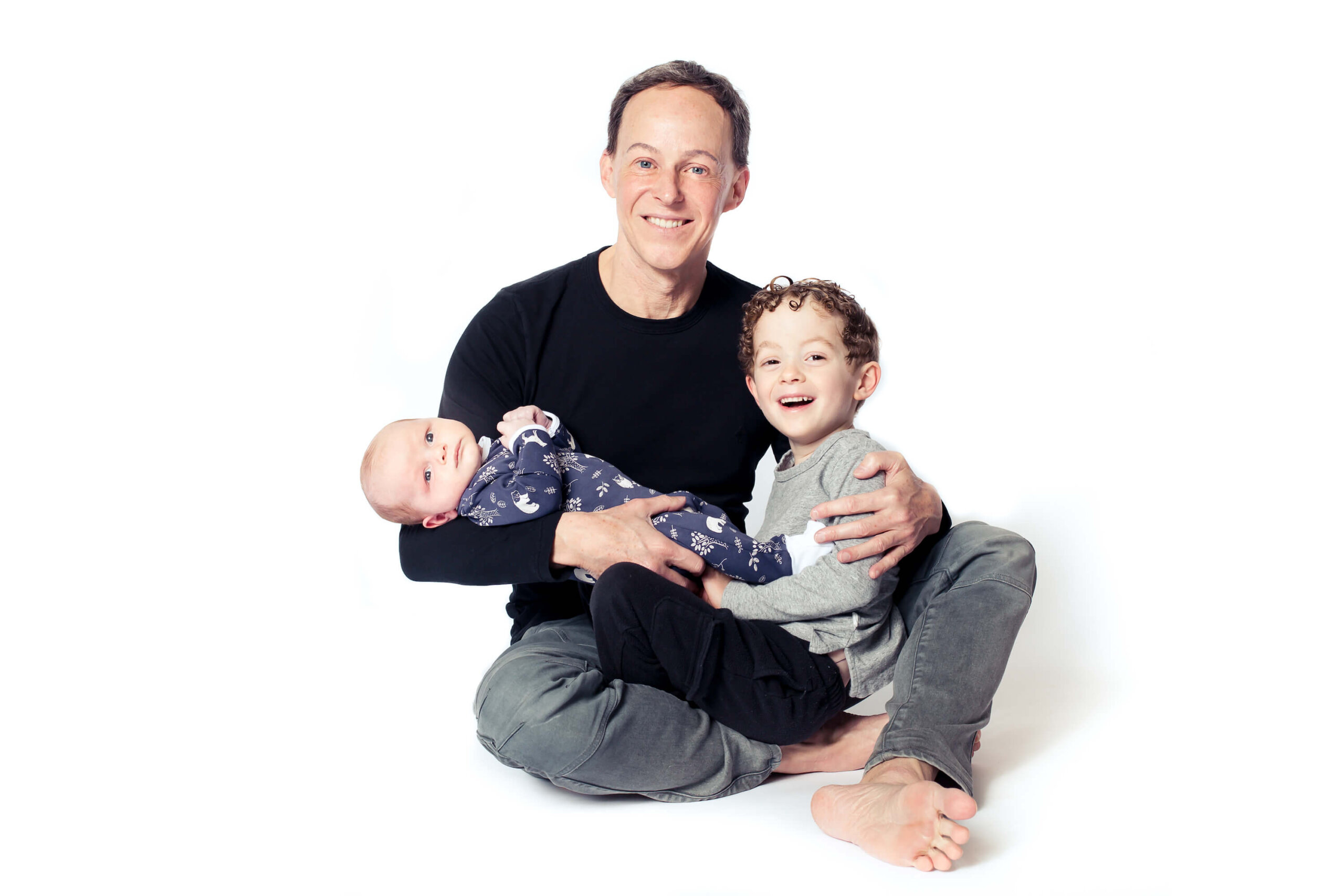Ken McNeilly’s journey to parenthood was not an easy one. It involved three egg donors, 18 embryos, five surrogates, seven embryo transfers, one miscarriage, two countries, four years and lots and lots of money.
That last bit—the money—is no surprise. In Canada, fertility medicine falls almost entirely into the private sector. Anyone looking to become a parent through surrogacy can expect to incur numerous costs: there might be agency fees to help find and co-ordinate egg donors and surrogates; screening fees to help make sure those people are healthy and stable; medical fees for ovarian stimulation, egg retrieval, fertilization, preimplantation genetic testing, freezing, storing, thawing and transferring into a uterus; drug costs to make ovaries produce eggs and help uteruses sustain pregnancies; flights and food and hotel rooms and visas and time off work.
All in all, McNeilly reckons that he had spent about $200,000 by the time he brought his bundle of joy home to Toronto in March 2016.
For its part, the Canadian government recognizes that assisted reproduction is an expensive undertaking, and it gives a tax break to people who use it. Many expenses related to assisted reproduction are allowable under the “medical expense tax credit” (METC). That means you don’t have to pay all the taxes on the money you earned to pay for those medical expenses—and that can put a nice chunk of change back in your pocket.
This was a comfort to McNeilly, who was pursuing parenthood on his own. He first reached out to a surrogacy agency in the summer of 2012, when he was a 43-year-old teacher with the Toronto District School Board. (He’s now with the Ontario Institute for Studies in Education.) He had a decent salary plus savings from years of working overseas in Belgium and South Korea. Still, the promise of tax relief was welcome.
When he filed his returns for the 2013 tax year, he claimed $12,175 under the METC for services like DNA fragmentation testing on his sperm, in vitro fertilization (IVF) and embryo freezing. The Canada Revenue Agency (CRA) initially challenged him, saying he wasn’t entitled to the tax credit, but in the end they allowed it.
“Over the years, McNeilly made several attempts in Canada to have a child. They all failed.”
Over the next couple of years, McNeilly made several attempts in Canada to have a child. They all failed. One surrogate was a no-show at the airport. Another changed her mind. A third gave it three tries, but each time she developed fluid in her uterus just before the embryo transfer; no luck. A fourth surrogate did get pregnant on the second try, but lost the baby at eight weeks. The last time didn’t take.
McNeilly’s $18,000 filing for tax year 2014 went unchallenged.
By spring 2015, he still had no child. Nor did he have any embryos left or much in the way of savings. Some friends told him gently that it was time to quit. “I had advice from good friends, who said, ‘Sometimes you’ve just got to accept what the universe is telling you.’ And I was like, you know, that’s BS. The universe is not trying to tell me anything. It’s just crappy luck. This happens for other people. There’s no valid reason why this wouldn’t happen for me.”
It was around that time that he was introduced to a gay couple doing surrogacy in Nepal. One of the dads was a doctor and had flown over to check things out. The Nepal clinic offered a flat-fee money-back guarantee, which was appealing considering what McNeilly had been through. “I never would have gone to Nepal if Canada had those kinds of package pricing models at the time, but they didn’t in 2015,” he says. “And so I decided to go.”
He selected an egg donor from a list provided by the Nepalese clinic and had his cryopreserved sperm shipped to Kathmandu; 10 embryos resulted. Two were transferred into the surrogate who was assigned to him, and both implanted on the first try. He was elated.
By the end of the 2015 tax year, McNeilly had tallied more than $45,000 in family-building expenses, both in and out of the country. At first, the CRA allowed his claim and gave him his refund. But a few months later, they reassessed and found him ineligible, except for the expenses directly related to his sperm. The tax credit, the government wrote, could only be claimed if the “patient,” as defined in the Income Tax Act (ITA), was himself, his partner or his dependent. The egg donors and surrogates, upon whom these medical procedures were carried out, were none of these. Ergo, no credit.
They asked him to pay the money back.
McNeilly filed an objection. He wrote, among other things, “The medical expenses tax credit, while intended to give modest tax relief to any Canadian taxpayer, is inaccessible to all gay-identified males wishing to become biological parents.”
The government held firm. The definition, they said, is the definition.
It was not lost on McNeilly that a straight couple undergoing IVF and paying out of pocket could claim their expenses under the METC. And it wasn’t strictly limited to medical costs: if they drove more than 80 kilometres to the clinic, for instance, they could claim that. If they stayed overnight in a hotel and ate breakfast in the hotel restaurant in the morning, they could claim that. If they flew to Nevada or the Czech Republic or Barbados and had the procedures done there, they could claim all the travel and accommodation costs related to that, too.
McNeilly, by contrast, could not claim the fertilization of eggs with his own sperm. He could not claim the transfer of his own genetically related embryos into a uterus. He could not claim the cost of ultrasounds to see how his children were doing in utero.
“The medical expenses tax credit is inaccessible to all gay-identified males wishing to become biological parents.”
It didn’t seem right.
On Apr. 14, with the pro-bono help of Toronto lawyer Adam Goldenberg at the firm McCarthy Tétrault, McNeilly filed a fresh notice of appeal and a fresh notice of constitutional question. He argued that, in order to have genetically related children, gay men need eggs from non-family egg donors and uteruses from non-family surrogates—who can never meet the ITA definition of “patient”—so the definition effectively denies the medical expense tax credit to taxpayers like him.
McNeilly believes that the definition of “patient” violates Canada’s Charter of Rights and Freedoms. Section 15 of the Charter, which talks about equality rights, says that individuals have the right to equal benefits under the law, without discrimination.
“But for the unconstitutional exclusion of egg donors and surrogates from the Definition,” the appeal says, “Ken would be entitled to claim the METC on his 2015 income tax return in respect of the fertility-related medical expenses at issue in this appeal.”
Amir Attaran, a law professor at the University of Ottawa, thinks the case points to an interesting question. Clearly the state has a duty not to prohibit a non-procreative relationship, he says. That is why it has made same-sex relationships legal. “But does it follow that the state has a duty to facilitate procreation… by the external means of a third person? That is unknown,” he says. Still, Attaran thinks the argument McNeilly and Goldenberg are making is a good one and that there is a chance they will win.
To be clear, anyone using a surrogate is ineligible to claim expenses under the METC, not just gay men. Straight women with fertility issues are in the same boat. McNeilly’s Charter challenge argues that such women are also being discriminated against on the basis of their reproductive disabilities.
In McNeilly’s fresh appeal, he has narrowed down his expenses to be very close to the ones he would have been able to claim had he been undergoing the same treatment with a female partner—things like egg retrieval, intracytoplasmic sperm injection (ICSI) and embryo transfer. He is now claiming $33,417.
But it’s not just about the money for McNeilly. “It has been very clear all the way through,” he says, “as much as I didn’t want to pay back those few thousand dollars, this is way more about the principle and the precedent.”
“For the most part, the LGBTQ2S+ community requires third parties in order to form families.”
McNeilly, a single dad in Toronto, now has two children, aged five and seven months. His oldest child, the first of the twins born in Nepal, died in hospital and never got to come home. His youngest child was born via surrogacy in Canada last year.
Ironically, around the same time the CRA was reassessing McNeilly’s 2015 tax return, the federal government was pledging to be more open-minded about fertility expenses. In its 2017 budget announcement, the government wrote, “Some of life’s greatest joys come from the experiences we share as a family, but some couples have difficulties expanding their families and require assistance. In some cases, such as single individuals and same-sex couples, the use of reproductive technologies may not be directly related to a medical infertility condition.”
Sure enough, Justin Trudeau’s Liberal government made a change to the income tax legislation, adding subsection 118.2 (2.2). Previously, people couldn’t claim fertility expenses unless there was a medical reason. Now they could. That would surely include single women and same-sex female couples and people electively choosing to freeze their eggs. But because of the definition of “patient,” it still excluded McNeilly.
“For the most part, the LGBTQ2S+ community requires third parties in order to form families,” says Kelly Jordan, a Toronto fertility lawyer. “This particular position has such a disparate impact on queer families in what is already hugely cost-prohibitive.”
McNeilly wants the definition of patient to be changed to include surrogates, egg donors and sperm donors.
The government’s reply is due June 11.


 Why you can trust Xtra
Why you can trust Xtra


